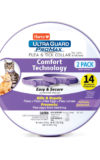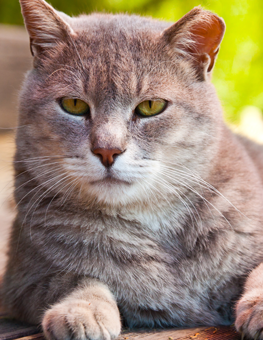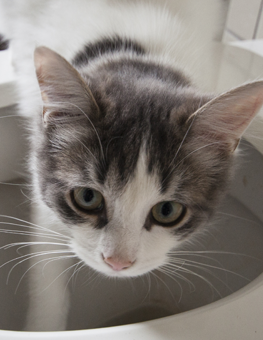Sleeping with pets may bring fleas into the bed
Everyone enjoys some quality snuggle time with their pets. A lot of us allow our pets onto the furniture at home and into our beds at night while we sleep. But what about fleas?

If your pet has fleas, they could potentially get them into your bed.
Fleas are carriers of parasites that can cause diseases in people such as Cat Scratch Disease, Tularemia, and Murine Typhus. Fleas can cause flea allergy dermatitis and anemia in our pets and can transmit tapeworms and other diseases. They cause a lot of itching and scratching as well as discomfort to our pets and they can bite us too.
Flea Home Infestation
Once fleas are established in the home, they can be very difficult to get rid of. Often times, regular cleaning agents are not enough to remove the flea eggs and immature fleas completely. Vacuuming and washing bedding or soft surfaces in very hot water helps, but it can be very challenging and frustrating to remove fleas from the mattress in addition to the house as a whole. The fear of fleas is legitimate, as they can cause tremendous distress and are a health hazard.
It is very likely that an animal with fleas could potentially get them into our beds if Fido is sleeping with us at night. Fleas are insects that naturally live outdoors and are parasitic. This means that they survive at the expense of their hosts. They jump onto our pets, or us, most often when we are outside in grassy or wooded areas. Some species of fleas can jump up to 8 feet! All fleas reproduce quickly, which can become a big problem in the bed and all over the house. Flea eggs are sticky and can get into the cracks in hardwood floors, carpeting, sheets and upholstery. Even as adults, fleas are very small and move very quickly, making them difficult to spot on our pets. More often than not, a professional is needed to get rid of them completely.

Ask your veterinarian which flea preventative product is best for your family to use.
Flea Prevention
The good news is that flea problems are preventable. There are many great products out there that prevent fleas and other parasitic critters from getting on and/or transmitting disease to our pets. Topicals, collars or oral preventative products will kill the flea before it gets a chance to reproduce, which, in turn, keeps our beds safe. Shampoos and sprays can be used to stop an active infestation on our pets and preventatives can be used to maintain that parasite-free state.
Speak with your veterinarian about which flea preventative product fits your family best. Always follow instructions carefully and use one product at a time. Ask them any questions about how to use or administer parasiticides. Sometimes it is necessary to get a pest control professional to come in and exterminate the fleas completely all at once. This way, we can all continue to give our fur babies good-night snuggles without having to fear the flea.













